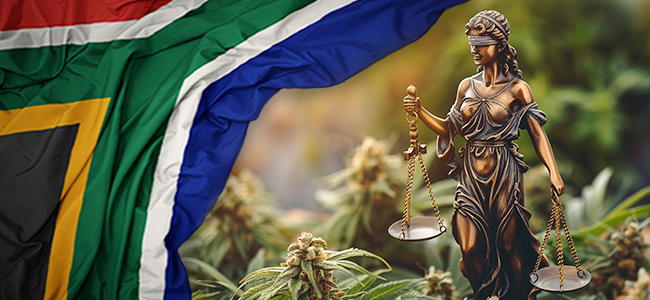
The New Cannabis Act: Here’s What You Will and Won’t Be Allowed to Do
“It’s high time they legalised cannabis” (Anon)
Much excitement has greeted the signing into law of the Cannabis for Private Purposes Act, which will formally regulate the cultivation, possession, and use of cannabis by adults in a private setting and, says the Presidency, lays the groundwork for regulatory reforms “to allow for the industrialisation of the cannabis sector.”
But although the new Act has been widely reported in the media as though it is already in force, this is not correct – it will only come into effect when its commencement date is gazetted. It is not clear at date of writing when we can expect this to happen, but it could be a lengthy process. Until then the rather vague parameters for private and personal use, possession and cultivation set by the Constitutional Court in 2018 will presumably remain in place.
In the interim, here are some highlights of the Act –
What is “cannabis” in the new Act?
“Cannabis” is defined for the purposes of the Act as meaning “the flowering or fruiting tops of a cannabis plant and includes products made therefrom” (i.e. “buds”, extracts, oils and the like) but the definition excludes “any seed, seedling, the stalk, leaves and branches.”
What you will be able to do, and what you won’t
In a nutshell, it will be legal within prescribed limits to grow, possess, use and share cannabis in private, but not to sell it. More specifically, and with the general requirement of “private purpose” –
- In private: Any adult (18 or over) will be able to cultivate, use, possess and share cannabis “in a private place for a private purpose”. But not in the presence of a child or non-consenting adult, and not “if it is likely to cause a disturbance or nuisance to any person” in a nearby public place. Note that when it comes to sharing (supplying or obtaining), there cannot be any exchange of “consideration” defined as “any form of compensation, gift, reward, favour or benefit” (i.e. sale for recreational as opposed to medical use will remain prohibited, even for private purposes). The prescribed “maximum amounts” (see below) will apply in private as well as in public places.
- In public: An adult will be able to possess (subject to prescribed maximum amounts), but not to use, cannabis in a public place.
- Protections for children: No child (person under 18) can be given cannabis or any cannabis product, nor be allowed to possess or use it without a medical prescription, nor can they be used to deal in it. Importantly, any adult “who is in possession of cannabis must take reasonable measures to ensure that such cannabis is inaccessible to a child whether that child is under the authority, supervision or care of that adult person or not.”
Maximum amounts will be prescribed, and transport will be regulated
Regulations will prescribe –
- The maximum amounts allowed for cultivation, possession and transport of cannabis.
- “Conditions, restrictions, prohibitions, obligations, requirements or standards regarding the transportation of cannabis, by the person transporting cannabis as well as in respect of the passenger in such transport.”
Current speculation (i.e. you can’t hold us to this!) is that the prescribed amounts will be based on those proposed in a version of the Bill which was not incorporated in the final Act. That Bill proposed that adults would be able to –
- Possess unlimited seeds and seedlings.
- Privately cultivate four flowering cannabis plants per person (or eight per household occupied by two or more adults).
- Privately possess 600 grams of dried cannabis per person (or 1,200 grams per household occupied by two or more adults).
- Publicly possess 100 grams of dried cannabis or one flowering cannabis plant.
- Provide/obtain for personal use 30 seeds/seedlings, 1 flowering cannabis plant, 100 grams of dried cannabis.
Note however that the 2020 Bill’s structure is different to that of the final Act, so wait for the final Regulations before relying on any of these speculated limits!
Criminal records to be expunged
Convictions for possession and use of cannabis (dagga) will be automatically expunged, as will convictions for dealing based on legal presumptions rather than actually dealing. Where records have not been automatically expunged, they will be expunged on application.
Provided by B. R. Sandwith Inc.
© DotNews. All Rights Reserved.
